I thought this article I'm about to post was cool. It came in my mailbox from the Two Listeners (where the God Calling posts come from). It was especially cool to me at this time because as some, if not all of you now know; I have been diagnosed with Pulmonary Fibrosis and emphysema. I had told you of the possibility of this in an earlier post and we learned on Tuesday that this is indeed the case.
We are all fine as frog-hair around here and will just take life as it comes. Anyway, this Thursday Treasures is long but thought some of you might like it. It does give a new twist.
Since I have discovered I’m ill, I have made it a point to push harder mentally and physically. Spiritually, hey, I love it. While I was tested only a little over a month ago, I knew something was wrong a couple of months earlier. It was so weird. I can almost pinpoint the day. Not exact day, but I do remember it was a day or so before painting class, the first Saturday in November. I remember because I woke up and did not want to go, but made myself. Even after I got there, I couldn’t paint. It was like my head would tell my hand to move, but my arm was just too tired to make that happen. And then every day was like that. By and by, I thought it might be horrible depression, everything gets put on that easy enough, and Dad had just passed, holidays, etc. and it would have been easy enough to believe, so I went to check about the possibility of a possible change in medication. Everything changed after she (the NP OB/GYN) listened to my lungs. So here we are. Both lungs are scarred and that will be debilitating and irreversible and fatal. But guess what? Something always is… for a while.
I’m going Home, folks, but to keep it real and Texan like, ‘You aren’t shed of me yet!’
Semper Fi and read on if you care to. We’ll try to pull everything back out of the Geriatric Ward what with me and Mom, but I think most of the young ones are on My Space anyway ;)
And now it’s not even Thursday. Oh well. Put on your WEAR RED ON FRIDAY shirt and read yesterday’s news today!
De’on
+++
Losing Your Health Doesn't Mean That You've Lost Everything ...
by Marc Gellman
Thursday Treasures-Reprinted with permission
Sept. 28, 2006 - This week's popular but untrue saying is, "If you have your health, you have everything." Because if this saying is true, then it also true that if you lose your health, you have nothing. This is not only false, it is spiritually corrosive. Placing upon people the double burden of both their illness and the despairing conclusion that their illness has taken away from them everything important is much more than false. It is deeply cruel.
I know that the saying intends to be positive. It intends to say something like, "We should never want more than just our health because nothing we have is more important." Of course I agree that we should strive to live healthful lives and avoid the transfatty parts of the universe, but health is a fleeting thing, affected by environmental and genetic and even purely random factors. The fixation on health as the only important thing is what is behind this saying, and what is behind the unnecessary and often debilitating despair of sick people.
In my life so far, the two people I knew who best refuted the if-you-have-your-health-you-have-everything saying were Henry Viscardi and Pam Rothman, may their memories be blessed.
Born with severely short, twisted legs, rejected by his parents and forced to grow up in a sanatorium, Henry Viscardi was the Martin Luther King Jr. of the disabled. He was a driving force behind the 1990 Americans with Disabilities Act and the founder of the Henry Viscardi School for the disabled in Albertson, N.Y. One day when my friend Msgr. Tom Hartman and I were visiting Henry, he said to us, "I never think of the people in this center as disabled. I think of you guys as just temporarily abled." Henry taught us that day that we are all part of the same continuum of gradually decreasing ableness that moves from the time we are children flying across lawns to the time when we wake up, get out of bed and say, "Oy, that hurts!" Nobody is disabled. We are all just temporarily abled until that day when we are no longer quite so abled.
When Moses broke the tablets bearing the Ten Commandments because of his anger at the people for worshiping the golden calf, God gave him a new unbroken copy, but God also commanded Moses to place all the broken pieces of the first tablets together in the same golden ark of the covenant that held the new unbroken tablets. The broken and the whole were together in the same ark. As it was so it is with us now. Those of us who happen to be disabled and those of us who happen to be temporarily abled are together in the covenant of God's love and must be together in the bonds of love and support we extend to each other. The broken and the whole are together in the same ark.
In the Jewish laws concerning the treatment of dying people, the rabbis taught this same lesson. In Shulchan Aruch Yoreh Deah, the first line we read is, "A dying person is like a living person in all essential respects." We are commanded to view dying people the way we would view any other temporarily abled people. They are living and we are living. In that essential respect we are the same. When we coddle them, infantilize them, hide the truth from them or treat them as if they were already dead, we have separated them from the community of people made in the image of God. My father, Sol Gellman, has Alzheimer's disease. My father does not know my name, but when I hugged him and kissed him goodbye on my last visit, he grabbed me and said to me, "I know that I belong to you, and I know that you belong to me." Even now, in the midst of his deepening fog, my father still knows everything that is important to know.
Pam Rothman died of cancer after a long struggle, and although she eventually lost her life, she never lost her smile. One day sitting in her hospital room, Pam said to me, "Rabbi, I can't be the best of the best any longer, but I can still be the best of the worst." And she was the best of the worst, the very best of the very worst. She helped other cancer patients cling to hope, she held her family together by her embracing love and she read and wrote to the end. In the end Pam was taken, but she was never defeated.
Like Pam, many people find that their greatest artistic, spiritual and personal achievements come after they are sick. The greatest theoretical physicist in the world is Stephen Hawking. He has the motor neuron disease ALS (Lou Gehrig's Disease), and he cannot move from his wheelchair. He speaks through a speech synthesizer. He has the best mind trapped in the worst body and this fact has not dimmed but brightened his brilliant light. Christopher Reeve was a good actor and a great Superman but he became a great inspirational force only after his injury. The greatest modern Jewish theologian was Franz Rosenzweig, and though he died in 1929, also from the predations of ALS, his illness did not diminish his brilliant translation of the Bible into German with his friend Martin Buber nor his philosophical masterwork, "The Star of Redemption," which he wrote by holding a pencil in his mouth and pointing to the keys on the typewriter.
Henry and Pam, Stephen and Chris, Franz and Helen Keller, Ray Charles, Stevie Wonder, Soren Kierkegaard, FDR, Beethoven and a thousand brave and wise and creative people whose bodies were broken or who suffered disabilities or ill health have given everything to the world—while millions of people who have their health have given nothing. And how else can we understand God's decision to pick Moses, a disabled man with a cleft palate to be the leader of the Exodus from Egypt? God picks the soul, not the body. Through an endless list of wounded genius we are taught and must finally learn that losing your health does not mean that you have lost your genius or your destiny.
Much of my counseling is devoted to helping people cope with newly broken lives. Perhaps their life has been broken by injury or illness or perhaps by the death or illness of someone they loved more than life itself. In all these cases the people who come to see me know that they have lost a substantial part of their physical or mental health, and because they secretly believe this damn saying, they think they have lost everything. My job is to convince them that the saying is wrong. I must try to urge them, cajole them, teach them and remind them that even in their weakened state they still have everything they need to lead a spiritually, morally and even physically happy life. They may not have what they had but they have what they have, and as long as they are still alive, what they have is enough. They may not be able to do what they once did. They may have to adjust the expectations of their life, but they do not have to surrender their life or their hope or their resolve to be the best they can be with what they have left. This is not a counsel of despair and resignation. It is a counsel of hope and faith.
The reason health is not everything is your health is about you, and everything really important in your life is about others: serving others, loving others and teaching others reveals our true purpose and ultimate destiny. The rabbis wrote, "Give me community or give me death." Losing your health is a terrible thing but losing a community of love and purpose is fatal. Our only chance to find everything is to get out of ourselves.
So I wish you a year of health, and I wish you a year of knowing that having your health is not even close to having everything.
+ + +
About the Author:
Marc Gellman
The Spiritual State
Gellman holds a B.A. from the University of Wisconsin and a Ph.D. in Philosophy from Northwestern University. He was ordained by the Hebrew Union College-Jewish Institute of Religion and is the senior rabbi of Temple Beth Torah in Melville, New York. Gellman is a past President of the New York Board of Rabbis.
Gellman was a contributing editor of Moment Magazine where his collection of modern interpretations of Bible stories for children first appeared. Does God Have a Big Toe? was selected by The New York Times, Time Magazine, The Los Angeles Times, and People Magazine, as one of the best children's books of 1989. His second volume of modern midrashim for children, God's Mailbox was published in 1996. In 1997 he published, Always wear Clean Underwear and other ways parents say they love you.
With his friend Monsignor Thomas Hartman, he published Where Does God Live? which received a Christopher Award; How Do You Spell God? (with a forward by the Dalai Lama) which was made into an HBO animated special and received a Peabody Award. They also co-authored Lost and Found: A Kid's Book of Living Through Loss; Bad Stuff in the News; and Religion for Dummies. Gellman and Hartman host a cable television program called, The God Squad, and write a nationally syndicated spiritual advice column in newspapers across the country. They also appear on many news programs and are regulars on Imus in the Morning.
Gellman and his wife Betty raise guide dogs for the blind. They have two married children, Mara, married to Ilan are parents of Ezekiel, and Max who is married to Phoebe.
Thursday, January 17, 2008
Subscribe to:
Post Comments (Atom)
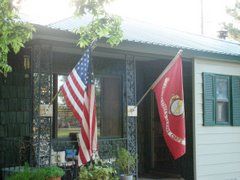
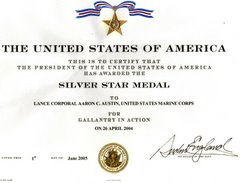
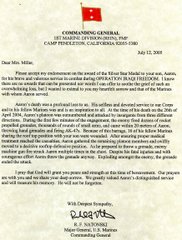
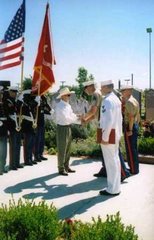















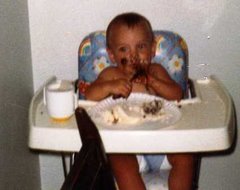


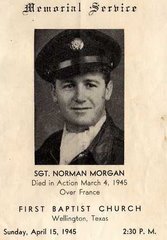
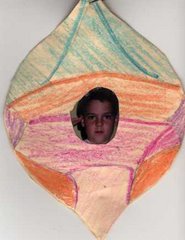

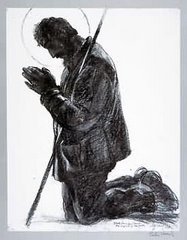

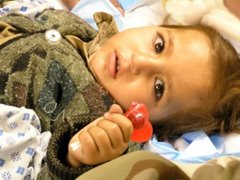
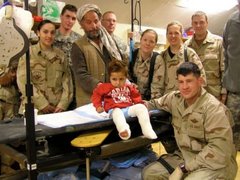


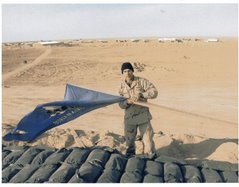



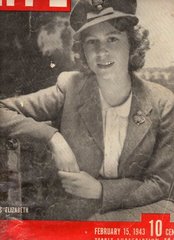

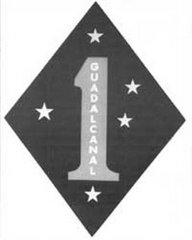





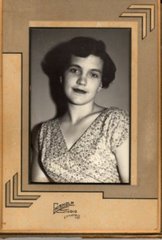

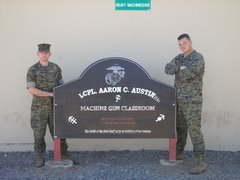

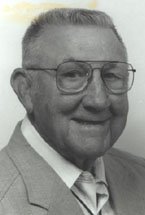

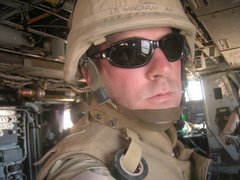
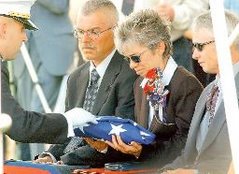




2 comments:
Wow!!! It's been forever since I've been on here and for that I am truly sorry!!! As you know, my life hit a huge bump in the road in September and now I'm just trying to survive as I get my life back on track! But please know that I think of you all the time and I miss you so much! I miss reading and writing on here as well, I will try my best to get my butt back in gear soon!!! Anyway, just wanted to drop by and let you know that I love you and my thoughts and prayers are with you!!!
Chantal, please come by when you can but I know you are busy and want you to be!
I know things have been tough. You stay tough when you can and cry when you want. I'm here and will always have your name up so even if it's years before you can post, that's cool.
No pressure here. You and David will always be in my prayers too.
I love you, Chantal and I'll be around for a while. Who knows for any of us but God does. It's written and we're working til we go, so go in peace sweet Redhead!
Post a Comment